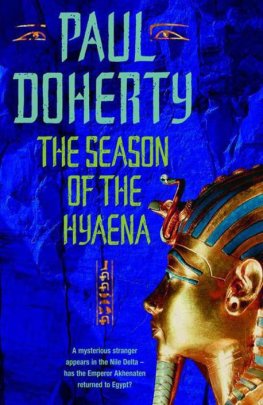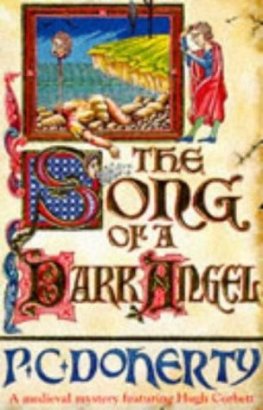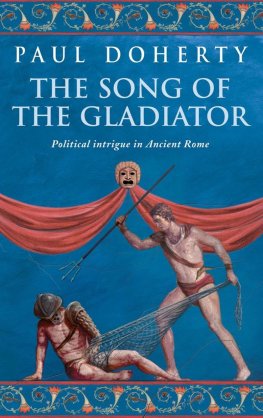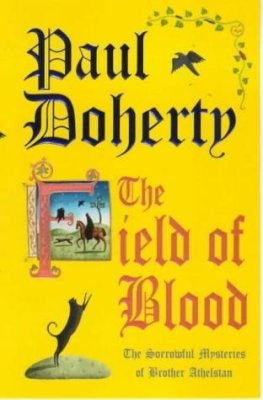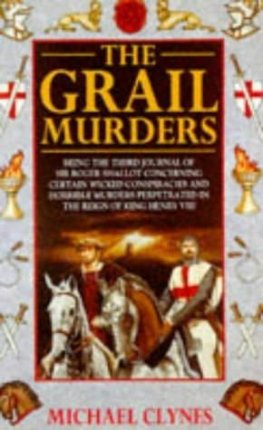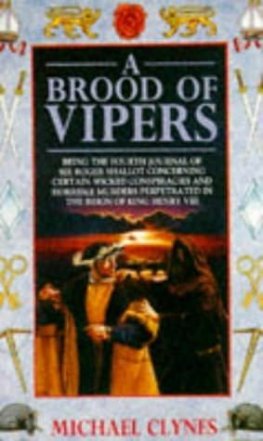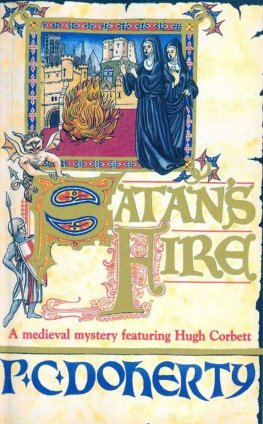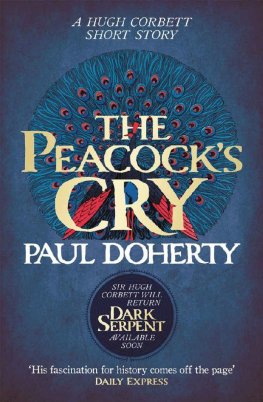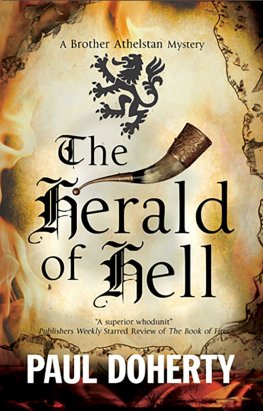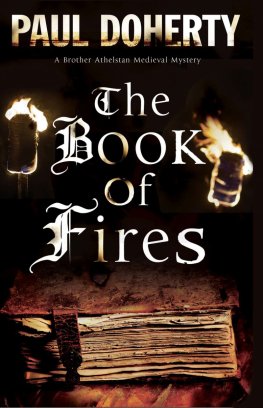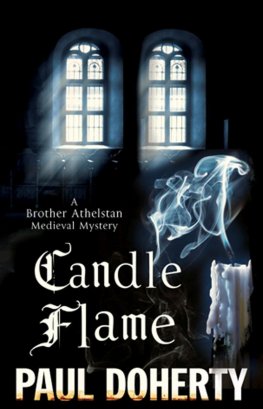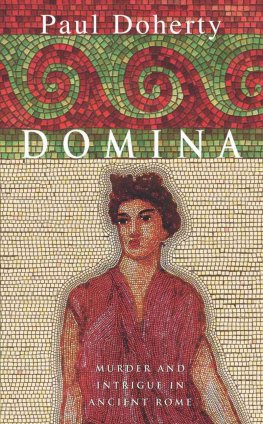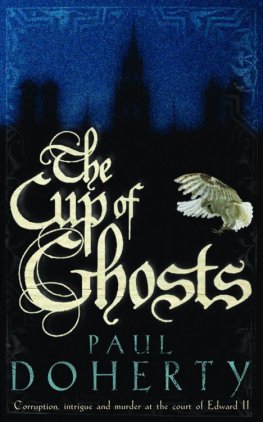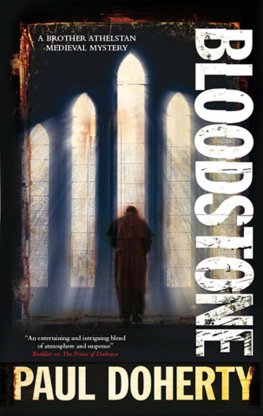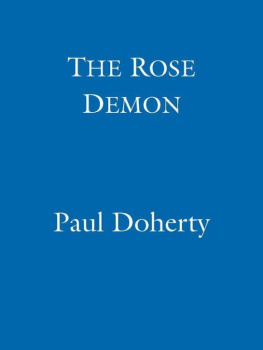Paul Doherty - The Season of the Hyaena
Here you can read online Paul Doherty - The Season of the Hyaena full text of the book (entire story) in english for free. Download pdf and epub, get meaning, cover and reviews about this ebook. year: 2012, publisher: Headline, genre: Adventure. Description of the work, (preface) as well as reviews are available. Best literature library LitArk.com created for fans of good reading and offers a wide selection of genres:
Romance novel
Science fiction
Adventure
Detective
Science
History
Home and family
Prose
Art
Politics
Computer
Non-fiction
Religion
Business
Children
Humor
Choose a favorite category and find really read worthwhile books. Enjoy immersion in the world of imagination, feel the emotions of the characters or learn something new for yourself, make an fascinating discovery.
- Book:The Season of the Hyaena
- Author:
- Publisher:Headline
- Genre:
- Year:2012
- ISBN:9780755350445
- Rating:5 / 5
- Favourites:Add to favourites
- Your mark:
- 100
- 1
- 2
- 3
- 4
- 5
The Season of the Hyaena: summary, description and annotation
We offer to read an annotation, description, summary or preface (depends on what the author of the book "The Season of the Hyaena" wrote himself). If you haven't found the necessary information about the book — write in the comments, we will try to find it.
The Season of the Hyaena — read online for free the complete book (whole text) full work
Below is the text of the book, divided by pages. System saving the place of the last page read, allows you to conveniently read the book "The Season of the Hyaena" online for free, without having to search again every time where you left off. Put a bookmark, and you can go to the page where you finished reading at any time.
Font size:
Interval:
Bookmark:
Paul Doherty
The Season of the Hyaena
Introduction
The Eighteenth Dynasty (15501323 BC) marked the high point, if not the highest point, of the Ancient Egyptian Empire, both at home and abroad; it was a period of grandeur, of gorgeous pageantry and triumphant imperialism. It was also a time of great change and violent events, particularly in the final years of the reign of Amenhotep III and the swift accession of the Great Heretic Akenhaten, when a bitter clash took place between religious ideologies at a time when the brooding menace of the Hittite Empire was making itself felt.
I was very fortunate in being given access to this ancient document which alleges to be, in the words of a more recent age, the frank and full confession of a man who lived at the eye of the storm: Mahu, Chief of Police of Akenhaten and his successors. Mahu emerges as a rather sinister figure responsible for security a job description which can, and did, cover a multitude of sins. This confession seems to be in full accord with the evidence on Mahu that has been recovered from other archaeological sources be it the discoveries at El-Amarna, the City of the Aten, or the evidence of his own tomb, which he never occupied. A keen observer of his times, Mahu was a man whose hand, literally, was never far from his sword (see here).
Mahu appears to have written his confession some considerable time after the turbulent years which marked the end of the Eighteenth Dynasty. He kept journals, which he later transcribed, probably during the very short reign of Rameses I (c.1307 BC). Mahus original document was then translated in the demotic mode some six hundred years later during the seventh century BC, and copied again during the Roman period in a mixture of Latin and the Greek Koine. His confession, which I have decided to publish in a trilogy, reflects these different periods of translation and amendment; for instance, Thebes is the Greek version of Waset, and certain other proper names, not to mention hieroglyphs, are given varying interpretations by the different translators and copiers.
In the first part of the trilogy, An Evil Spirit Out of the West, Mahu described the rise and fall of Akenhaten: that Pharaohs mysterious disappearance, the attempt by his Queen Nefertiti to seize power, and her brutal and tragic end. In this second part, Mahu reflects on the mysteries surrounding such dramatic events. He and others of the Kap, now Lords of Egypt but bound by the close ties of childhood, are still haunted by what has happened, and fearful of what is to come
behhu
(Ancient Egyptian for hyaena)
Chapter 1
Death appears before me today like a firebrand glowing in the dark, like stains on the street, blood glistening on the stone.
Death appears before me today like the smoke from a fire, like the hot wind from the desert, like pain from an open wound.
The words of the ancient poem are often on my lips and echo through my heart, especially last night, when I was woken by the gruesome roaring from the river bank. I knew what had happened. I went out this morning, the Nubian mercenaries accompanying me down through the gates of the small mansion, a small, elegant palace, but still my prison. We went to the edge of the Nile where the land rises, overlooking the great forest of papyrus green, fresh and supple, nourished by the black silt the new waters had brought.
We heard the sound too, the captain of mercenaries murmured.
I did not reply. I do not speak unless I have to. I spend most of my time writing down the truth, or what I think is the truth, about the Dazzling Time, the Shattering Years, the Season of the Hyaena, or so they describe it, when Akenhaten the Heretic Pharaoh promulgated his belief in the one god, the Aten, and built a new city in the hopes of creating a new empire. A time when all of Egypt, the Kingdom of the Two Lands, Tomery, beloved of the Gods, trembled and shook in his presence. Some chroniclers describe those years as a great shadow racing over the land; others talk of a dazzling burst of sunlight. Whatever they say, the Nile still ebbs and flows and the land is soaked in blood. Ah well! I walked along the bank and glimpsed the crimson froth, pieces of flesh floating amongst the reeds. Once again the Nile had tasted blood; crocodiles had ambushed a hippopotamus cow giving birth amongst the reeds, attacking both mother and newborn. They must have feasted well: wine-red bubbles winked and burst on the rivers surface, whilst the tang of blood was stronger than the rich odours from the disturbed ooze.
I walked back to the house recalling the words of a holy man who compared life to steps of a pyramid. Each life force, soul or Ka climbs to a different stage: plant, bird, animal or human being. I could well believe it. I have lived amongst crocodiles all my life, hunted with the most savage hyaenas, flown with the heavy-lidded vultures to plunder and peck on the battlefields of life. I, Mahu, son of Seostris of the Medjay, beloved friend of the Pharaoh, former Chief of Police, the Eyes and Ears of the King, the Overseer of the House of Secrets, Keeper of the Secrets of the Heart. I, who have seen well, I shall tell you what I have seen. After all, I have no choice. The Custodian of the Secrets of the Great House of the new Pharaoh, may the Gods bless his name, has demanded that I confess all, that I sit and whisper my secrets like a penitent would to a priest in a Chapel of the Ear. They have shut me up in this mansion with its cool rooms washed in sky blue and its sweet-smelling gardens to finish this task. I sit in my chamber and stare out of the window. The shutters are removed so as to catch the light of day and the cooling breeze from the river. My eye is caught by the glittering water of the artificial pool, or the various greenery of the trees: acacia, terebinth and sycamore. The call of some animal echoes eerily. I start at a flash of colour as a bird wheels against the sky. I always do that, a legacy from the days of battle when the eye is sharp and the heart keen to catch the whirling flurry of an arrow or the shadow of a falling sword, then I relax, I let my body fall slack.
The sun sets, the shadows creep across the gardens. My chamber seems to grow, until it is no longer a writing office with painted walls, their refreshing green borders with dark red bands fade away. It becomes a hall from the Underworld, large and cavernous, filled with shifting shadows. I lift my wine cup and toast the dead as they rise, unsummoned, to greet me. They take their places, smile or glower. Pride of place goes to him, the Great Heretic, the heinous sinner, Akenhaten! They dare not mention his name. They call it cursed, a filthy word, yet to me, the name is like the chord of a harp, the tune of a flute, bringing back bittersweet memories. Akenhaten, the Grotesque, the Ugly One, the Veiled One, with his eerie, misshapen body, hips broad as a woman and pendulous chest; arms, legs, fingers and toes long and spidery thin. The Spider, a priest from the Temple of Hours called him, but what does he know? What is he but a worm on the earth, a shaven head, with little between his legs, and nothing between his ears?
Akenhaten enjoyed a majesty all of his own, a splendour and grandeur unknown to many. He comes before me like a statue in a shadowy temple with the sun playing on the red quartzite. I glimpse his high cheekbones, those slanted sloe eyes which seemed to rest on the sides of his face. Yet this is no statue, but a face pulsating with power, whilst the eyes glow with a fever I never truly understood. The lips are not of stone but full, red and pouting. In a temper that long jaw would quiver and the mouth spit out curses like Horus does fire to burn millions. And who comes next? Ay, Akenhatens father-in-law. A crocodile amongst crocodiles! Commander of the Chariots, Keeper of the Diadem, Fan-Bearer on the Right-Hand Side of the King, Gods Father, Chief amongst the Hyaenas. A liar, adulterer, fornicator, assassin, lecher, who slept with his own daughter and his daughters daughter. Ay, the mongoose man, with the clever, smooth face of a scholar; handsome-eyed and pleasant-mouthed, lean and personable, charming, smiling and utterly untrustworthy, a veritable cobra in human flesh.
Font size:
Interval:
Bookmark:
Similar books «The Season of the Hyaena»
Look at similar books to The Season of the Hyaena. We have selected literature similar in name and meaning in the hope of providing readers with more options to find new, interesting, not yet read works.
Discussion, reviews of the book The Season of the Hyaena and just readers' own opinions. Leave your comments, write what you think about the work, its meaning or the main characters. Specify what exactly you liked and what you didn't like, and why you think so.

